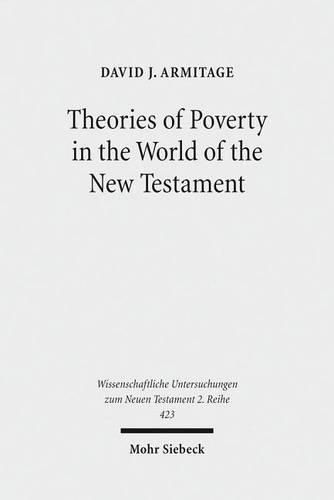Readings Newsletter
Become a Readings Member to make your shopping experience even easier.
Sign in or sign up for free!
You’re not far away from qualifying for FREE standard shipping within Australia
You’ve qualified for FREE standard shipping within Australia
The cart is loading…






David J. Armitage explores interpretations of poverty in the Greco-Roman and Jewish contexts of the New Testament, and, in the light of this, considers how approaches to poverty in the New Testament texts may be regarded as distinctive. Explanations for the plight of the poor and supposed solutions to the problem of poverty are discussed, noting the importance in Greco-Roman settings of questions about poverty’s relation to virtue and vice, and the roles of fate and chance in impoverishment. Such debates were peripheral for strands of the Jewish tradition where poverty discourse was shaped by narrative frameworks incorporating transgression, curse, and the anticipated rescue of the righteous poor. These elements occur in New Testament texts, which endorse wider Jewish concern for the poor while reconfiguring hope for the end of poverty around an inaugurated eschatology centred on Jesus.
$9.00 standard shipping within Australia
FREE standard shipping within Australia for orders over $100.00
Express & International shipping calculated at checkout
David J. Armitage explores interpretations of poverty in the Greco-Roman and Jewish contexts of the New Testament, and, in the light of this, considers how approaches to poverty in the New Testament texts may be regarded as distinctive. Explanations for the plight of the poor and supposed solutions to the problem of poverty are discussed, noting the importance in Greco-Roman settings of questions about poverty’s relation to virtue and vice, and the roles of fate and chance in impoverishment. Such debates were peripheral for strands of the Jewish tradition where poverty discourse was shaped by narrative frameworks incorporating transgression, curse, and the anticipated rescue of the righteous poor. These elements occur in New Testament texts, which endorse wider Jewish concern for the poor while reconfiguring hope for the end of poverty around an inaugurated eschatology centred on Jesus.